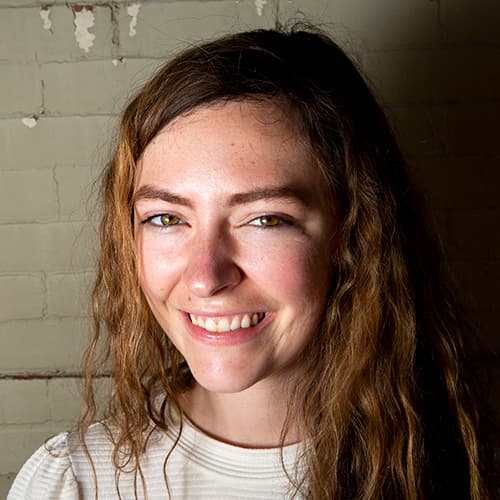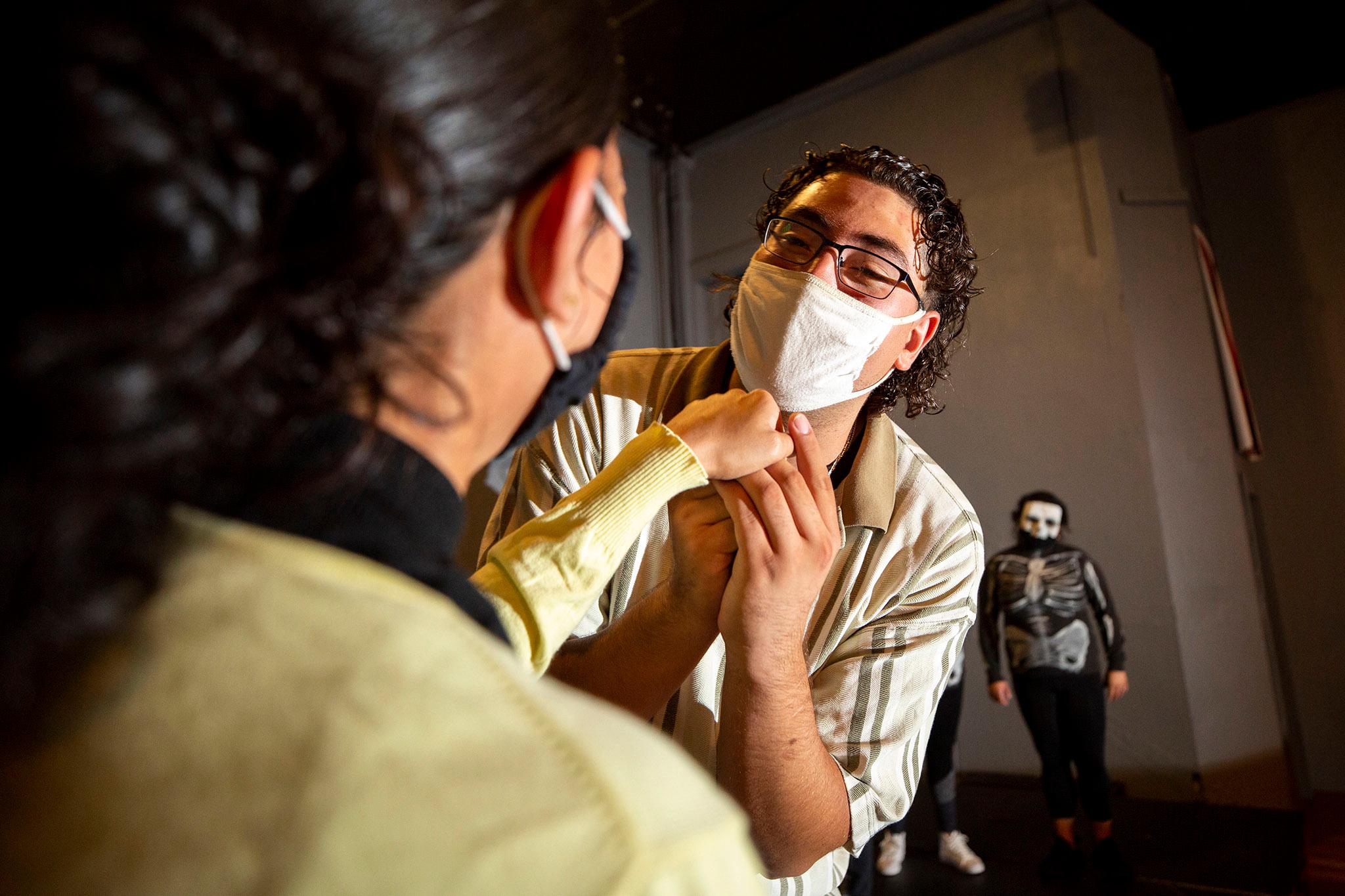Head's up: Masks, and proof of vaccination are required at all Su Teatro shows. Here's more on that.
For five decades, Su Teatro has produced more than 40 original shows in Denver. Now, the community-driven theatre company is entering its "Golden Season," a two-year 50th-anniversary celebration featuring revivals of their past productions, readings of the company's many original works and tributes to Su Teatro's actors, as well as the nationally recognized playwrights that have come out of the theatre, including Luis Valdez, Octavio Solis, Cherie Moraga and Rudolfo Anaya.
The company is kicking off celebration season with the revival of one of its first and most important shows, a musical play originally conceived by Executive Artistic Director Anthony Garcia in 1973: El Corrido del Barrio.
"It's really kind of a homecoming in a lot of ways," Garcia said. "It's a way of us exploring our roots."
The production tells the story of the displacement of the Chicano community from Denver's "Westside" in order to build the Auraria Higher Education Center. From the 1920s to 1960s, the area was home and a place of refuge for many Mexican Americans in Denver. But in 1969, the city passed a bond referendum authorizing the Denver Urban Renewal Authority to use the power of eminent domain to condemn and demolish buildings in Westside, evicting hundreds of residents and leading to the demolition of their homes for the construction of the Auraria Campus. Westside community members were abruptly dispersed throughout metro Denver, and their community center -- Saint Cajetan's Church -- was relocated to West Alameda.
"The church was really the center of the Mexican American community at the time, and now it was decentralized," Garcia said. "This was a community that was depopulated. It was moved aside. And there wasn't really an investigation or a rationale into what that would cost, what would be the long-term trauma that would be caused."
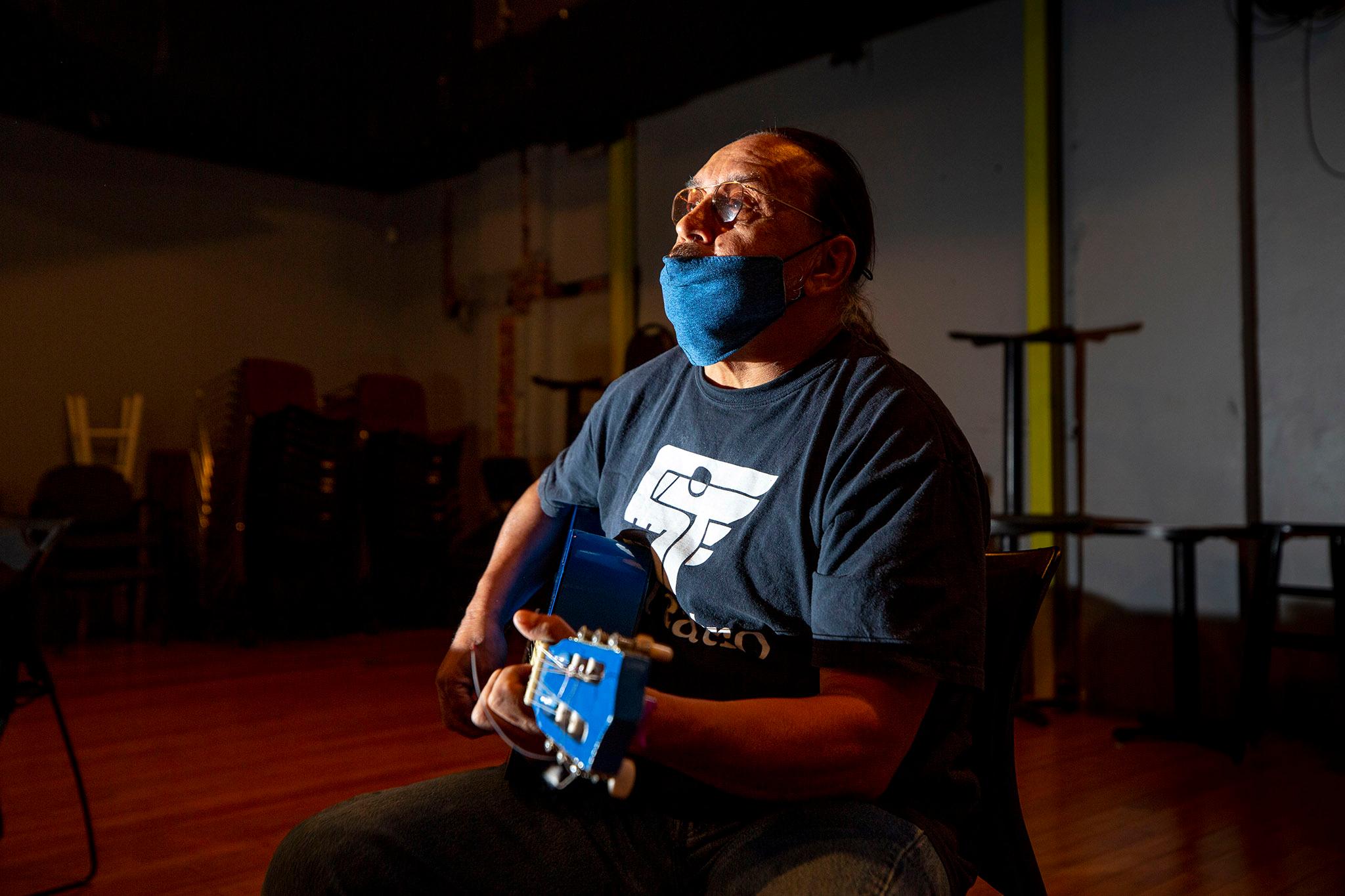
The play shows the devastating effect the displacement and loss of the church had on Westside community members, as well as the opportunities presented by the change. Garcia is an alum of the University of Colorado at Denver, and teaches Chicano and Chicana Studies at MSU Denver, both of which are part of the Auraria campus.
"What I benefited from this loss was I was able to go to the universities and get a higher education," he said. "But what also was lost is it dispersed the Mexican American community."
Written and directed by Garcia, El Corrido del Barrio is based on Garcia's own experiences growing up on 9th and Champa streets in Westside.
"I spent my first 12 years of my life in that neighborhood and not really knowing any other neighborhoods," Garcia said. "I understood that sense of family there, people that I lived next door to, I went to school with, and we saw them at church, and our parents knew each other. My mother would go to the front porch, and she'd yell for us. And if we couldn't hear, somebody else's mother would say, 'You better go home, your mother's calling you.' So we had that real sense of community."
Saint Cajetan's was a big part of Garcia's life, too, as was the case for many residents at that time. He was baptized there, had his First Communion there and attended St. Cajetan's Elementary School for eight years.
"What it really was is a community institution, where so many of us were able to organize ourselves politically," Garcia said. "So many of us were able to get access to certain things outside of our community, to learn about our community, and then to interact with each other."
He said for him, the loss of the community also meant losing a sense of safety.
"That was what we did in our community, we protected each other, we safeguarded each other, we were there for each other. And now we just kind of drive by each other," he said. "It wasn't until the whole process to depopulate or displace that community started to take place that I started understanding how the outside world actually works."
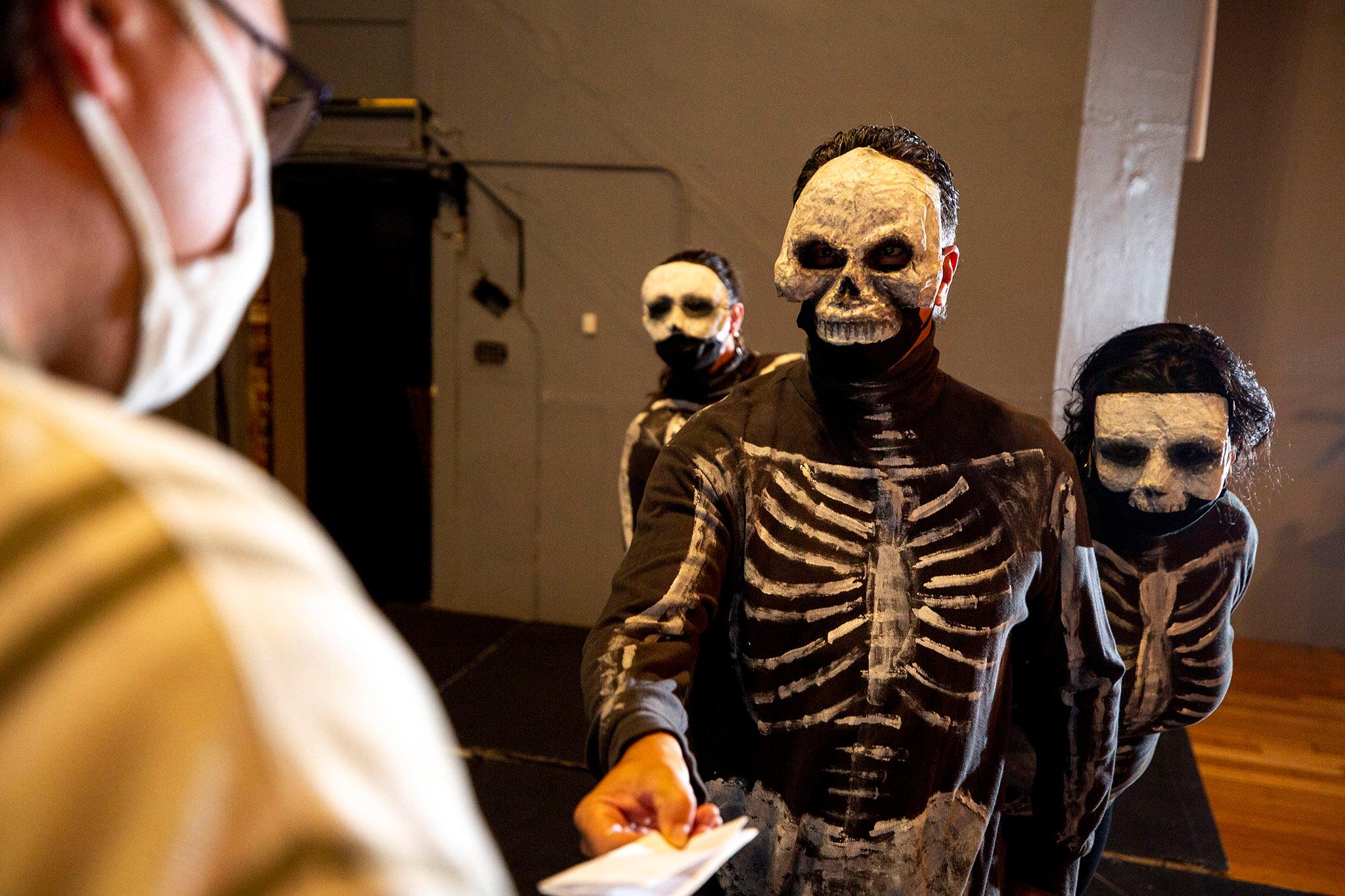
He remembers experiencing racism in areas outside of Westside, and remembers the community organizing around the death of a teenage boy, Louie Pineda, at the hands of the police.
After Garcia joined Su Teatro years later, he walked down 9th through his old neighborhood on his way to rehearsal, past empty and boarded-up buildings.
"Walking down the streets and seeing those houses and feeling the ghosts and the memories of people who gathered after church, and walked on Christmas Eve, we all went to each other's houses, the open houses," Garcia said. "All that kind of stuff, it just disappeared."
It struck Garcia that these homes that once were so full of life, and that held so many memories, now stood empty. He went to his fellow company members and told them that Su Teatro needed to do a play about Westside. That very night, he wrote these lyrics, which are still in the play:
"Aqui vivimos en el barrio de West Denver, trabajamos, lloramos y cantamos, porque somos todo que tenemos."
We live here in the neighborhood of the Westside, we work, we cry and we sing because we are all that we have.
Garcia says the production, like other Su Teatro shows, is deeply rooted in Latin American and Mexican traditions.
For example, the music is based on Concheros, a type of traditional Aztec dance.
"We learned those techniques very early in our evolution, which is why it makes so much sense to start off these two years demonstrating those roots," he said.
The narrative is told using Corridos, a Mexican ballad tradition of sung-storytelling. Garcia said that in the 1800s, Corridos were used to share news and stories orally from town to town. Decades later, they're also used as a theatre technique.
"The corrido comments on the action, describes action, and in many ways, serves as a narrator," Garcia explained. "It keeps a musical flow from the beginning to the end."
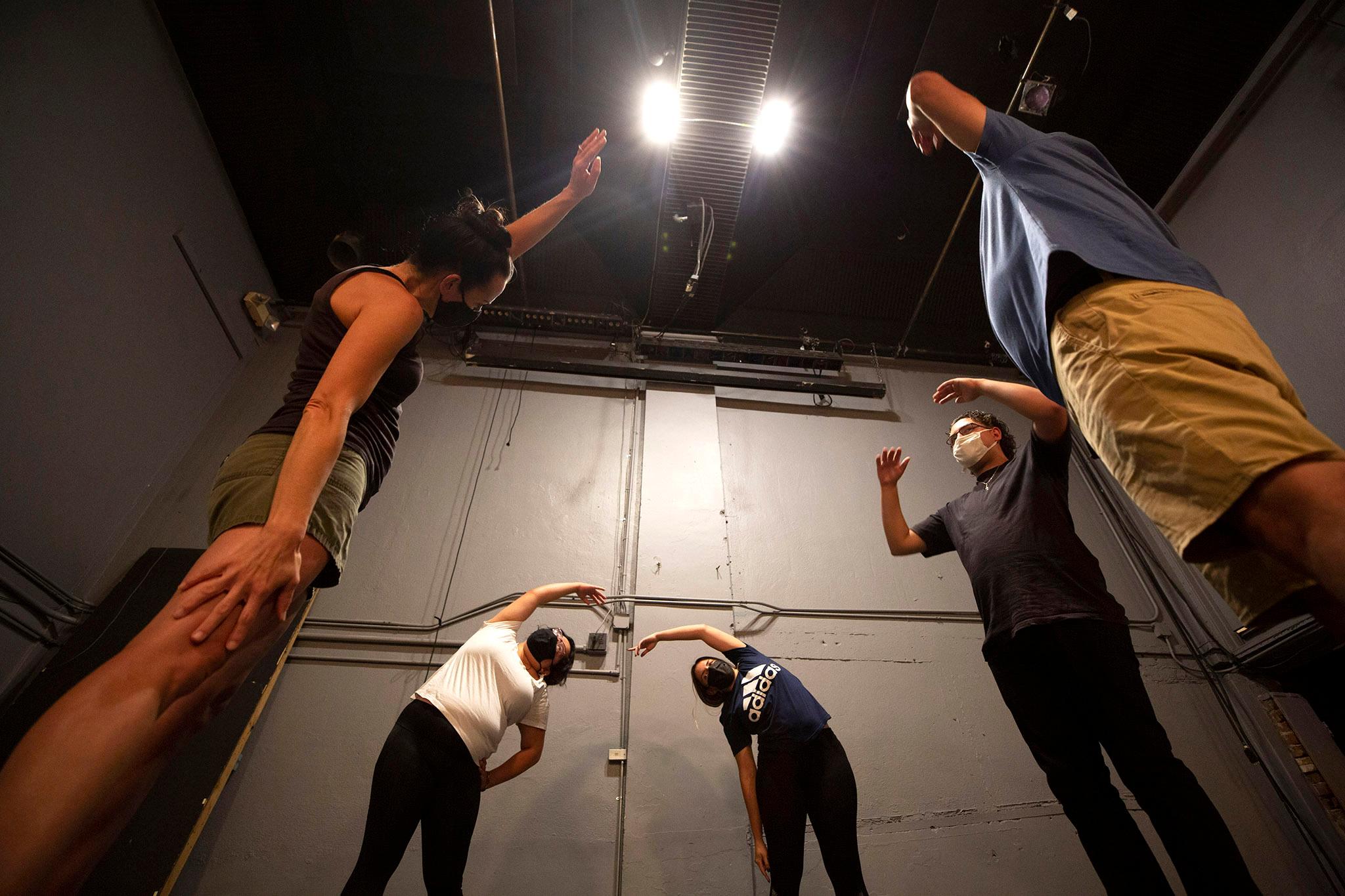
The play follows the displacement of the community primarily through the lens of two main characters: Comadre Isabel, who represents the neighborhoods that made up Westside, and her next-door neighbor Vecina Lina. Garcia says the play has funny moments but is also meant to be moving.
"Is it about nostalgia? No, I think it's about us wanting to fight to regain those things and to have those relationships with our community," Garcia said. "And to mourn that loss, because I think that's an important loss to mourn."
The play debuted as a street performance in the 1970s and has evolved over the years as the company -- and Denver -- has.
"It's not the same play that we did the first time. It's a different play. And there's a different perspective and understanding of it," Garcia said. "For me, I think it's us using our roots as a springboard to highlight the different things that we've done and the things that we're going to do."
When it premiered in 1973, the young company members were motivated and inspired to incorporate their experiences with the Chicano Movement and the radical antiwar movement to provide a platform for discussion. They traveled, performing stories about community, displacement and sociopolitical issues at parks across the Southwest. Garcia said the narrative was constantly evolving.
"I'm sitting in the audience, and I watch the audience, and I'm wanting to rewrite it every night," Garcia said. "That process is the most interesting to me. And we've been really fortunate because we own our work. As a writer, I could do anything I want to with it."
In the 1980s, years after the show's debut, Garcia rewrote it into a corrido-based narrative for revivals at Slightly Off Center Theater on 15th St. and the Denver Center for the Performing Arts. In 1991, Su Teatro performed El Corrido del Barrio out of their first venue at Elyria Elementary School.
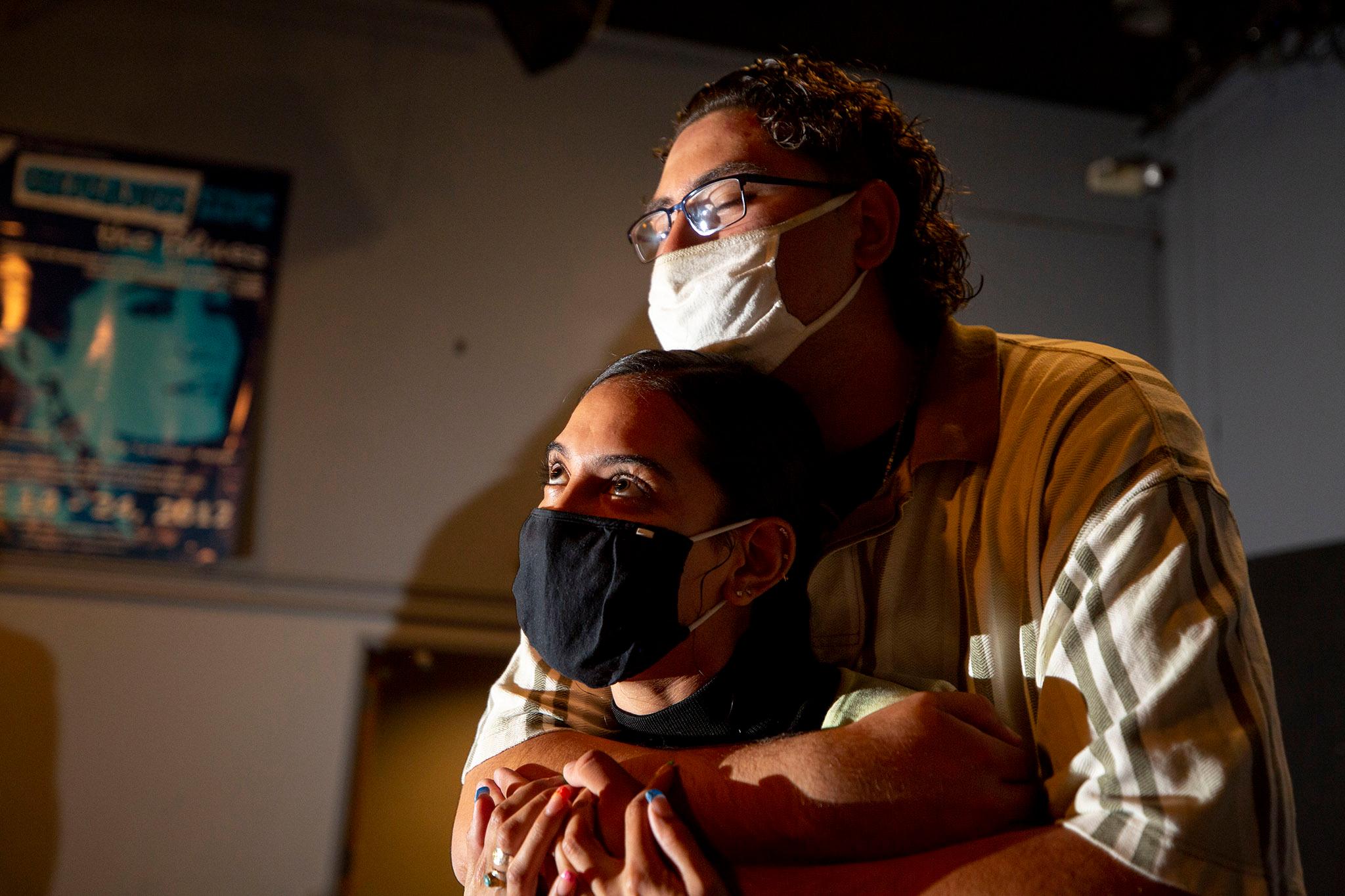
The production had a homecoming revival at the site of the original St. Cajetan's Church 1998, bringing the show to the Auraria Campus for the first time and reuniting some of Westside's dispersed residents within the audience. In 2000, the show was revived again in the King Center, at the site of what was once St. Catejan's Elementary School. The show returned to Westside in 2011, at Su Teatro's current venue on Santa Fe Drive.
This year's production, in many ways, will stay close to the show's roots. Yolanda Ortega, who'll play Comadre Isabel, was an original cast member who's filled that same role several times over the years. Vecina Lina will be played by Karen Slack, who was in the cast of an earlier Corrido production as a teenager and is now making her return to Su Teatro.
Still, the 2021 revival will look a bit different from years past. Garcia says they've updated the costumes and redeveloped the show's music to include contemporary elements, plus some new solos. It will also begin with a ritual of remembrance, in which the actors will bring recuerdos or memories of their family members as a way to honor those who've passed in the last year due to COVID.
"We lost so many of our families and our people," Garcia said. "It's a way of us honoring them, and connecting them to those lives that went through that neighborhood as well. "
He said the show, which is about loss, community, isolation and a changing city, will resonate in new ways in 2021.
"We're looking at a COVID world, we're looking at a world where those intimate gatherings and that sense of community has been really challenged. We've been living in isolation quite a bit," Garcia said. "I think also when we walk around the city, and we see so much of the city being torn down and being replaced with glass and concrete, and we're going, 'Wait a minute, people can't (afford to) live in Denver anymore.'"
He said that it can be difficult for people living in Denver to find the same sense of community he grew up knowing in Westside, and hopes the play encourages the audience to seek connections and to think about the communities that have helped shape Denver and Colorado.
"I would like them to leave with the desire to build community, to respect, to understand neighbors, to value those who came before us, and value those traditions," Garcia said. "And understand, for us as Mexican Americans, we have a long history in this city, and in this state. And for us, there shouldn't be a situation of us feeling as if we're outsiders."
Showtimes:
El Corrido del Barrio runs Thursdays, Fridays and Saturdays 7:30 p.m. from October 7-23, 2021. There will also be a closing matinee performance on Sunday, October 24 at 2 p.m. Tickets are available now.
Masks are required, and all audience members must provide either proof that they're fully vaccinated against COVID or received a recent negative PCR test. COVID protocols are subject to change based on current mandates and recommendations.
